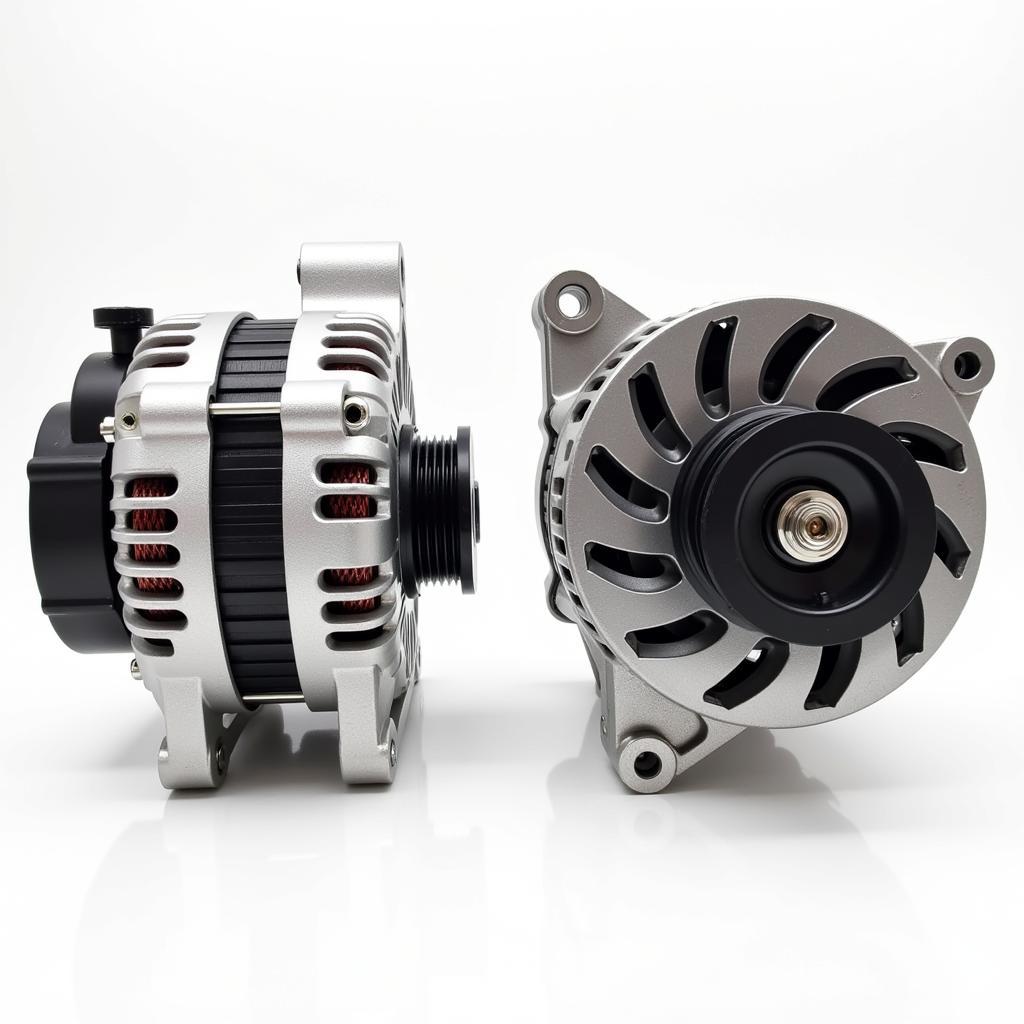Car audio capacitors. They promise enhanced bass and a solution to dimming headlights, but do they really deliver? Or do car audio capacitors cause more problems than they solve? This is a question many car audio enthusiasts grapple with, and we’ll delve deep into it. We’ll explore the science behind these devices, their potential benefits, and the common pitfalls that can lead to more headaches than harmonious tunes.
Understanding Car Audio Capacitors: Hype or Help?
Car audio capacitors are essentially energy storage devices designed to supplement your car’s electrical system when demanding audio components, like subwoofers, require a sudden surge of power. They act as a buffer, releasing stored energy to prevent voltage drops that can lead to dimming headlights or weakened bass response. But are they truly necessary?
How Car Audio Capacitors Should Work
Ideally, a capacitor stores energy and releases it quickly when the amplifier demands it. This rapid energy transfer prevents the voltage from dipping, ensuring your headlights stay bright and your bass hits hard, even during demanding musical passages. Think of it like a reservoir for your car’s electrical system.
The Reality of Car Audio Capacitors
While the theory sounds promising, the reality can be different. In many cases, a properly sized alternator and good quality wiring are far more effective at delivering consistent power to your audio system. Capacitors are often a band-aid solution for underlying electrical system issues. They can even mask these problems, making them harder to diagnose down the line.
Do Car Audio Capacitors Cause More Problems Than They Solve: Common Issues
While some enthusiasts swear by car audio capacitors, they can create their own set of problems. Incorrect installation, cheap components, and unrealistic expectations can lead to:
- Overcharging and Damage: Improperly installed capacitors can overcharge and explode, posing a safety risk.
- Short Circuits: Faulty capacitors can short circuit your car’s electrical system, causing significant damage.
- Minimal Improvement: Often, the perceived improvement in sound quality is negligible, especially if the underlying electrical system is already robust.
- Masking Underlying Problems: Instead of addressing the root cause of dimming headlights or weak bass, a capacitor might just temporarily mask the symptoms.
- Added Expense: Capacitors add another layer of cost to your audio setup, a cost that could be better spent on upgrading other components, like the alternator or wiring.
Addressing the Root Cause: Alternatives to Car Audio Capacitors
Instead of relying on a capacitor, consider these alternatives:
- Upgrade Your Alternator: A higher output alternator provides a consistent and reliable power source for your entire electrical system, including your audio components.
- Improve Your Wiring: High-quality, adequately sized wiring efficiently delivers power to your amplifier, minimizing voltage drop.
- The “Big 3” Upgrade: Upgrading your battery cables, alternator charging wire, and engine ground wire significantly improves current flow throughout the vehicle.
What John Doe, a seasoned car audio technician with over 20 years of experience, has to say:
“In my experience, a capacitor is rarely the solution. Nine times out of ten, upgrading the alternator and wiring will yield far better results and address the underlying problem.”
 Car Audio Alternator Upgrade
Car Audio Alternator Upgrade
Conclusion: Car Audio Capacitors – A Careful Consideration
So, do car audio capacitors cause more problems than they solve? In many cases, the answer is yes. While they can provide a small benefit in specific situations, they are often a band-aid solution for a larger electrical issue. Before investing in a capacitor, consider addressing the root cause of your problems by upgrading your alternator and wiring. This will often provide a more significant and lasting improvement to your car audio system. Need help diagnosing your car audio issues? Contact AutoTipPro at +1 (641) 206-8880 or visit our office at 500 N St Mary’s St, San Antonio, TX 78205, United States. We’re here to help you get the best possible sound from your car audio system!
Another expert opinion from Jane Smith, an electrical engineer specializing in automotive systems:
“A capacitor is like putting a tiny bandage on a large wound. It might temporarily cover the problem, but it won’t actually heal it. Focus on strengthening the entire system, not just adding a quick fix.”
FAQ
-
What is a car audio capacitor? A car audio capacitor is an energy storage device intended to supplement your car’s electrical system for demanding audio components.
-
Do I really need a capacitor for my car audio system? Likely not. Upgrading your alternator and wiring is often a more effective solution.
-
What are the risks of using a car audio capacitor? Improper installation can lead to overcharging, explosions, and short circuits.
-
What are the alternatives to using a car audio capacitor? Upgrading your alternator, improving your wiring, and performing the “Big 3” upgrade are better alternatives.
-
How can I determine if a capacitor is right for my system? Consult with a qualified car audio professional to assess your specific needs.
-
What size capacitor do I need? Capacitor sizing depends on your amplifier’s power demands. However, focusing on alternator and wiring upgrades is usually a better approach.
-
Can a capacitor damage my car’s electrical system? A faulty or improperly installed capacitor can indeed cause damage to your car’s electrical system.




Leave a Reply